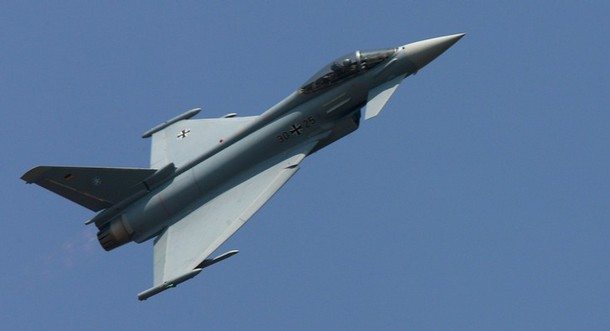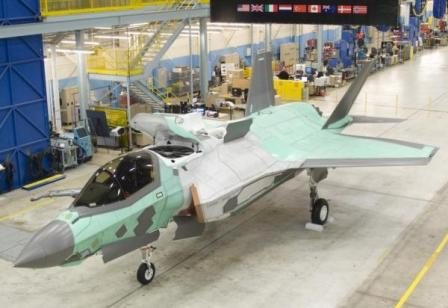The cost of each Eurofighter Typhoon aircraft ordered by Britain has soared by 75 percent due to bad planning and over-optimism, the public sector spending watchdog said Wednesday.
The National Audit Office (NAO) said that while the fighter jet was performing some defence tasks, it is unlikely to reach its full potential as a multi-role aircraft until 2018.
Britain originally ordered 232 Typhoons in the 1980s. The number has been cut by 72, but development costs have risen by a fifth to £20.2 billion ($33 billion, 23.8 billion euros) and support costs have also gone up.
The NAO estimates that each individual aircraft is 75 percent — or £55 million — more expensive than originally anticipated and the total programme cost will eventually hit £37 billion.
While Typhoons are performing well in air-to-air missions, £564 million of work on adapting them for ground attacks is unlikely to be complete until 2018, the report said.
The Typhoon, a multi-purpose twin-engine fighter jet introduced in 2003, is built by a consortium made up of the European Aeronautic Defence and Space Company, Britain’s BAE Systems and Alenia/Finmeccanica of Italy.
“The Typhoon is currently performing important operational tasks but the full multi-role capability won’t be available for a number of years,” said NAO chief Amyas Morse.
“Until this happens the Ministry of Defence will not have secured value for money from its over £20 billion investment in Typhoon.
“Difficult and deep-rooted problems remain to be overcome.”
Morse added: “Key investment decisions were taken on an over-optimistic basis; the project suffered from corporate decisions to try to balance the defence budget; and the department did not predict the substantial rate at which costs would rise.
“None of this suggests good cost control, a key determinant of value for money.”
Defence Equipment minister Peter Luff said the MoD and the Eurofighter consortium had learnt from past problems and insisted the Typhoon is “a world-class, multi-role weapon system which meets the defence challenges of the 21st century”.
Britain said Tuesday it would axe around 11,000 armed forces jobs as part of an eight percent cut in defence spending over the next four years as it looks to rein in a record deficit running at around 10 percent of GDP.
Prime Minister David Cameron’s government say they inherited a £38 billion shortfall in military spending plans.
Eurofighters were grounded last year in several countries due to the problematic ejectors after a crash killed a Saudi pilot.
Italy also slashed its order of 121 jets by 25 in a bid to cut costs.











